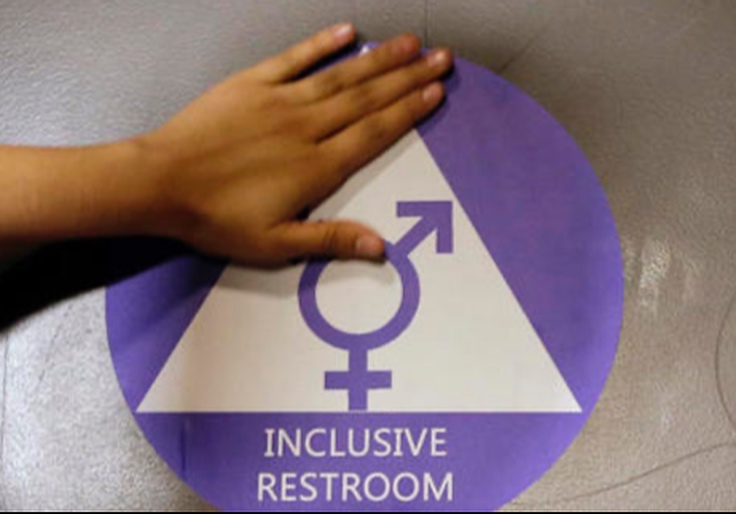National, state, and local groups that work to prevent sexual violence are throwing their support behind a Biden administration rule that would effectively force schools to allow biological males to use female-only bathrooms and locker rooms.
President Joe Biden's Education Department last year proposed new Title IX rules to expand the prohibition of discrimination in schools "on the basis of sex" to include gender identity. A 60-day public comment and review period followed, which prompted some 240,000 submissions. Among those comments were memos of support from various sexual violence prevention groups, such as End Rape On Campus and the National Alliance to End Sexual Violence, organizations that aim to "end campus sexual violence" and advocate for "the prevention of sexual violence," respectively.
The Biden administration's new Title IX interpretation will effectively give transgender students legal protections to use the bathroom or locker room of their choice. It will also hinder those seeking to hold transgender individuals accountable for sexual misconduct, such as when an 18-year-old transgender high school student in Wisconsin exposed himself to four freshman girls in a locker room shower following a physical education class.
The girls were given no recourse—as is typically afforded in accordance with Title IX—nor did the school implement policy to clarify who, when, or how biological males and females may use locker rooms, according to Cory Brewer, an attorney with the Wisconsin Institute for Law & Liberty. Still, End Rape On Campus noted in its public comment submission for the Biden administration’s Title IX proposal that it was "pleased to see broader definitions of sex discrimination" added to Title IX.
"EROC shares the [Education Department’s] recognition of the necessity to include protections based on gender identity in the new rule," the group wrote.
The National Alliance to End Sexual Violence, along with 79 other groups who "advocate for survivors of sexual violence and the prevention of sexual violence," similarily submitted comments that described support for broadening the scope of Title IX to include gender identity. The alliance insisted that "in light of increasingly pervasive anti-LGBTQI+ violence" and "anti-LGBTQI+ state legislation" it has become "all the more urgent that the Title IX regulations codify explicit protections for LGBTQI+ students."
In addition to End Rape on Campus and the National Alliance to End Sexual Violence, several state and local groups, such as the Illinois Coalition Against Sexual Assault and Chicago’s Alliance Against Sexual Exploitation, submitted similar public comments in favor of expanding the scope of Title IX to include gender identity.
Erika Sanzi, the director of outreach at parental rights nonprofit Parents Defending Education, told the Washington Free Beacon that it is "incoherent" to stand against gender-based violence and sexual violence while simultaneously "inviting males into spaces where girls and women undress."
"These same people who say they want to protect women and girls are actively putting them in danger," Sanzi said.
The Free Beacon reached out to both End Rape on Campus and the National Alliance to End Sexual Violence to understand how their stated missions of preventing sexual violence comports with their support for broadening the scope of Title IX but did not receive a response.
Legal challenges to the Biden administration’s rule are already underway, including in the conservative U.S. District Court for the Eastern District of Tennessee. A ruling from that court has prevented the Education Department from implementing Biden’s new Title IX rules in 20 mostly GOP-led states.
The Biden administration, however, has taken steps to insulate its regulatory plan from legal challenges, noting that in "limited circumstances" schools "may provide sex-separate programs or rules" under the de minimis harm standard. This broad standard provides that if sex-separation is to occur it must be implemented in a way that causes the least amount of harm to those affected.
But even without that carve out, federal courts have sided with transgender students on the issue of bathroom or locker room usage, indicating school policies that prohibit bathroom access consistent with a transgender student’s gender identity can violate Title IX.
A finalized Title IX rule from the Biden administration is expected to come down in October. Alongside that rule will be separate guidelines involving transgender participation in student athletics, which is also expected to be finalized come October.
Thomas McKenna, Charles Hilu, and Ryan Nevin contributed to this report.
